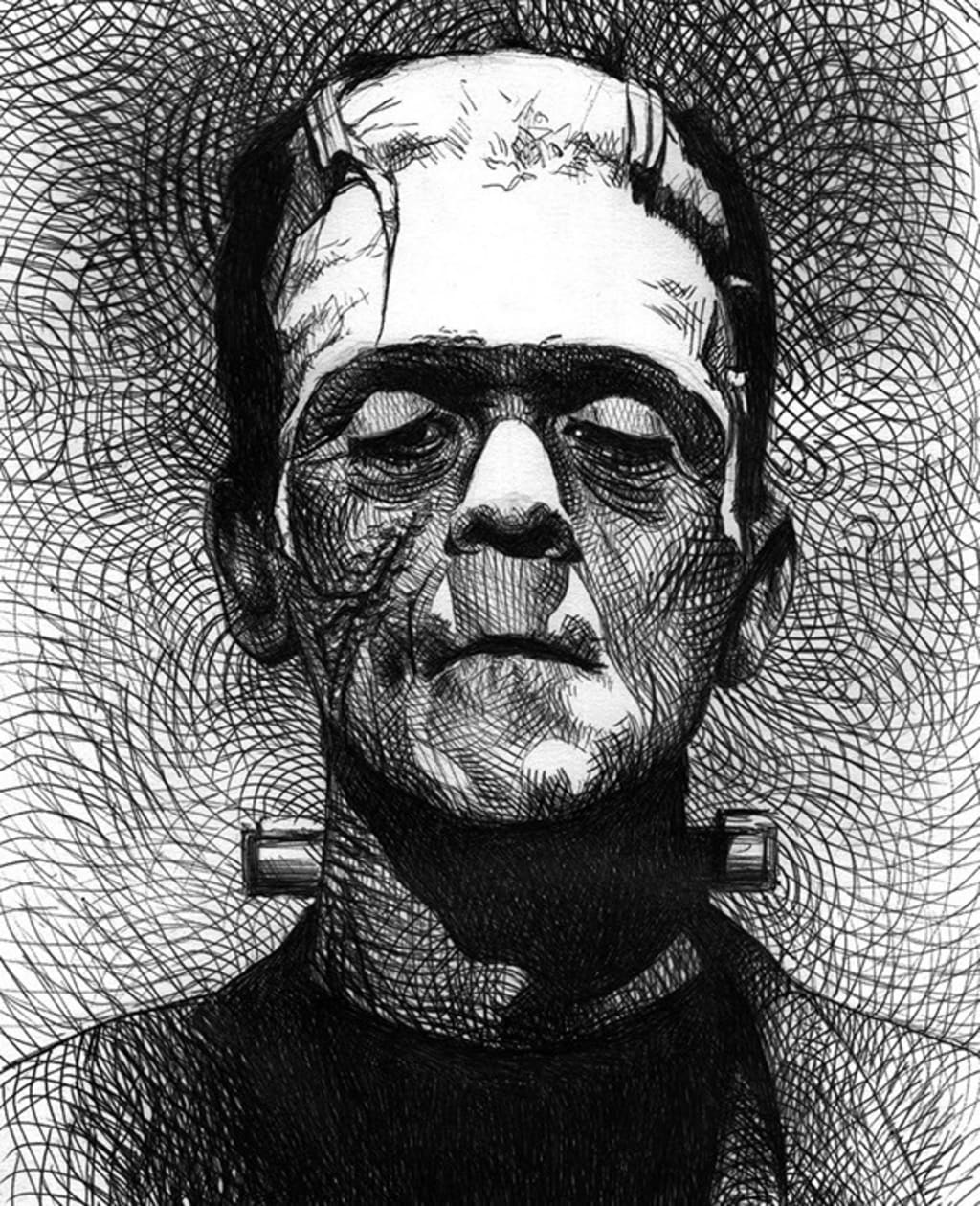The Commodification of Family Relations in Shelley's 'Frankenstein'
A Marxist Perspective

In Elsie Michie's Marxist critique of Frankenstein, she discusses the consequences of capitalism on laborers. She argues the creation of the monster as a production, rather than creation, or as she calls it "imaginative creativity" (Michie 29). Further, she maintains that Victor portrays the exploited and estranged laborer in a capitalist system where everyone is taken advantage of for the sake of the capitalists, as she cites the alienation of Victor as an example of the bourgeoisie’s exploitation of the laborers. However, in light of Michie's analysis of the family, she merely discusses it in the context of alienation and separation, which according to her, stems from Victor's "obsessive involvement in the process of production" (Michie 28). She states that Victor is completely "cut off" from his family, and is entirely separated from society during the "production" of the creature, even after the conclusion of his product. She maintains that the creature is the culprit for "separating Victor from family [and] friends (Michie 28). This is how briefly she refers to the family in her article, neglecting crucial aspects of Marx and Engels analysis of the family, such as the commodification of family and social relations. She also argues that by portraying the monster's birth as an act of production, Mary Shelley is criticizing the belief of "imaginative creativity" advanced by the Romantic poets, including her husband Percy. In this paper, however, I argue that the family and social relations in the novel are, as Marx and Engels’ analysis of the family shows, commodified and divorced from sentimentality and compassion. This can be seen in the commodification of Elizabeth and Safie, and the Frankensteins's indifference towards Justine’s criminalization and execution.
Elizabeth was commodified twice by both her first foster parents, and the Frankensteins. Marx and Engels advocated that the foundations of the capitalist or bourgeois family are based on "capital, [and] private gain," thus family relations are torn away "from its sentimental veil," are commodified, and monetized (24). During the Frankensteins's trip to Milan, Mrs. Frankenstein was enthralled by the beauty of a little girl -Elizabeth—whom she encountered during her trip, who appeared as “a different stock” (Shelley 24). Mrs. Frankenstein was fascinated by and very attracted to Elizabeth’s distinctive features, and regarded her as a heavenly-sent of a “distinct species” (Shelley 24). From the moment Elizabeth's foster mother, who was "bent down by labour," perceived how interested Mr. and Mrs. Frankenstein were in Elizabeth, and realized that they're probably here to adopt Elizabeth, and thus one less hungry mouth to care about, Elizabeth's mother "eagerly communicated her history" in an attempt to enchant the Frankensteins about Elizabeth, and convince them to take her away, close to what a shopkeeper would do if a potential buyer was pacing to and fro in their shop (Shelley 24). Elizabeth’s first mother did not contemplate what a huge decision she was about to make, and without any hesitation gave Elizabeth away to the Frankensteins. Marx and Engels would probably label this as the transformation of children "into simple articles of commerce and instruments of labour, as the family ties among the proletarians are torn asunder" (25).
Further, not only has Elizabeth been commoditized by her first, or proletariat family, but also by the Frankensteins, her bourgeois family. After Elizabeth is given away from that proletariat family to the Frankensteins, she is once again commodified, and this time by Mrs. Frankenstein, even though it was she who insisted on adopting Elizabeth. Mrs. Frankenstein "playfully" teases Victor that she has a "pretty present" for him, which later turns out to be Elizabeth (Shelley 25). Mrs. Frankenstein presents Elizabeth to Victor as that promised gift, and at a very young age, she decides that Elizabeth is to marry Victor, who regards her as a commodity, an object, as a "possession of [his] own” (Shelley 25).
Safie was also commoditized by her father as he was on the brink of execution. In order to ensure that Felix's plan to rescue the Turk should smoothly take place, the Turk—being on the brink of execution and capital-free—compensates Felix, although temporarily, by giving him Safie as bait in return. He "allowed intimacy to take place, and encouraged the hopes of the youthful lovers, while in his heart he had formed far other plans. He loathed the idea that his daughter should be united to a Christian" (Shelley 108). The Turk even tried to secure Felix's plan by promising Felix "her [Safie] hand in marriage" (Shelley 106). Though the idea of his daughter engaging in an affair with someone whose religious beliefs are not identical to his was repulsive to the Turk, he fulfills Felix's wishes and compensates him with Safie. And once Felix's plan is concluded, and the Turk is freed, the Turk in return prohibits his daughter "to think no more of her lover," as she is placed back again under her father’s “tyrannical mandate” (Shelley 109).
The Frankensteins's attitude to the victimization and execution of Justine also shows that family relations are divorced from sentimentality. Victor, for instance, knew who the killer was as the monster confessed to him that he killed William, and that he framed Justine so it would look like she murdered William. Although Justine was "a great favorite of [his]," and he thought of her as a "girl of merit [who] possessed qualities to render her life happy," he stays silent in light of the false accusation of Justine, which results in her being executed. He fears that people would deem him as a madman, and would look upon him “as the ravings of insanity” if he tells the truth (Shelley 68). He convinces himself that he would be deemed a madman by the whole world if he is to "disclose the object of [his] suspicions," jumping to conclusions that people would in no way believe his tale (Shelley 68). Yet he does not even try to do so. He could have told his tale, and just then if people did not believe him, at least he would have tried to save his adopted sister. So, he makes no effort at all to help Justine, though she is a family member, and consequently scapegoats her life for his concern of his reputation.
In addition, every single member of the Frankensteins abandoned Justine, apart from Elizabeth, and quickly jumped to conclusions as they believed that she was guilty. Ernest, for example, who believed Justine to be "amiable and fond of all the family," did not give a second thought that it may not be Justine who committed "so appalling a crime" (Shelley 66). While disclosing some information about the murder of William, Ernest refers to her as the one who caused the death of his brother, and the agony his family was going through. Likewise, Alphonse abandoned Justine, whom he always "valued so highly," even though at that point, the evidence mounted against her was inadequate (Shelley 66). And when Victor informs his father that he knows who the murderer is, and that Justine is innocent, Alphonse coldly rebuffs him, replying that if she is, she would have been acquitted (Shelley 66).
Some may argue that Mrs. Frankenstein's remark on Elizabeth as a gift should not be taken literally, as she meant it playfully. It is possible that she meant it that way, as Victor later acknowledges that it was indeed playful, but it was him that interpreted with "childish seriousness" (Shelley 25). The way Caroline presented Elizabeth to Victor might have created a stronger brotherly bond between them. Victor, for instance, upon meeting Elizabeth and hearing his mother's remark, couldn't have a prouder brother, as he was looking forward to "protect, love, and cherish" her (Shelley 25). However, this remark signifies much more than a playful or teasing comment. Mrs. Frankenstein's subconscious erupts when she refers to Elizabeth as a gift, as it reveals in a way the subconscious of a bourgeoisie that would go to the extent of monetizing familial relations. It also shows that they would have no issues in commodifying human beings, let alone family members. Elizabeth is reduced to a commodity or a product that can be owned or traded. The fact that she adopted her from a proletariat family, and then gave her away as a present for somebody else's amusement could be associated with a tradable physical product.






Comments
There are no comments for this story
Be the first to respond and start the conversation.